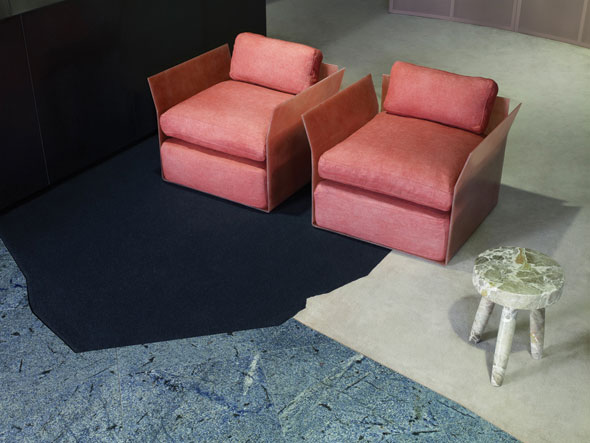
The newest ACNE addition is located in the Aoyama district of Tokyo—one of the hottest shopping, eatery, and nightlife spots in Tokyo right alongside Shibuya and Harajuku. Cacophonous youth gather and mingle in the storefronts and in the alleyways—each of their fashion-forward, personally styled, and nonchalantly worn ensembles more creative and eye-catching than the next.
In the bustling and chaotic streets of Tokyo—with bright, moving lights and even more brightly appareled youth—it’s no surprise that trendy ACNE would want to open up a store in one of its most thriving areas in order to reach these trendy masses.
What started out as an idea for an abstract gathering of art and expression, Ambition to Create Novel Expression (ACNE) came to be. ACNE started out as the best stroke of luck combined with ingenious marketing when the Swedish designer, Jonny Johansson, made 100 pairs of raw-denim jeans, featuring memorable red stitching, and gifted them to friends
and family.
As ACNE grew to be one of the most-acclaimed, breakthrough brands of the mid-90’s—and remains as one of the most coveted in the big fashion cities like Stockholm (where it all
began), Paris, London, and New York—it has stayed true to its original concept of design: classic, minimalistic, and just enough avant-garde to produce true works of art and genius that remain attainable and wearable. It is no surprise that the clean, fuss-free styles of ACNE would open its next location in the heart of a culture that has perfected the art of clean lines and minimalism.
The new Aoyama-based store (or studios, as ACNE more
accurately describes their spaces) truly is a study in minimalism with the loose theme of a “home within a store.” Each “room” is a separate space with aesthetic hints towards the traditional living-room, bathroom, and dining-room setup. The transaction area is in the center of the store and features a large, black rectangle, while walls and a long bench of glitter-flecked white marble sit in another section. A floor of pale, Earth tones in large patchworks and walls of slate greys, off-whites, and powder blues—all in varying textures—create a backdrop for singular items displayed prominently and scantily throughout the studio. Cabinets and counters are simply stone grey, and black rectangles of furniture are scattered throughout. Two large, faded-red armchairs sit side by side—their overstuffed cushions supported by slanting sheets of translucent fiberglass. And footstools of solid, mottled-marble dot the floor.
ACNE’s streamlined styles perch upon rectangular-lighted glass podiums or are hung in small, selective groups on bare
silver racks. Shining mirrored columns, or 3-ways, add to the silver light within its spacious, design-conscious layout.
The whole space feels elegant and capacious and is, at once, primitive and futuristic in its simplicity and mix of modern shapes and design with a variety of surfaces and textures. ACNE studios are always studies of artistic design-consciousness, and ACNE Aoyama is a sound addition.
Text by Ida Hsiang

